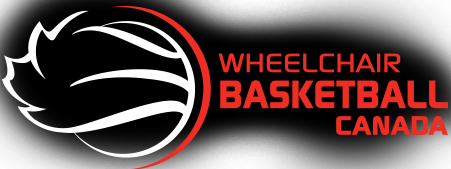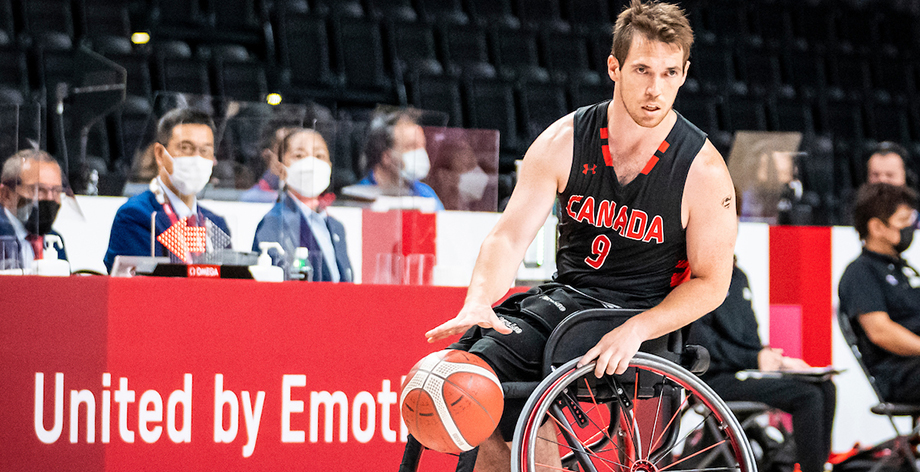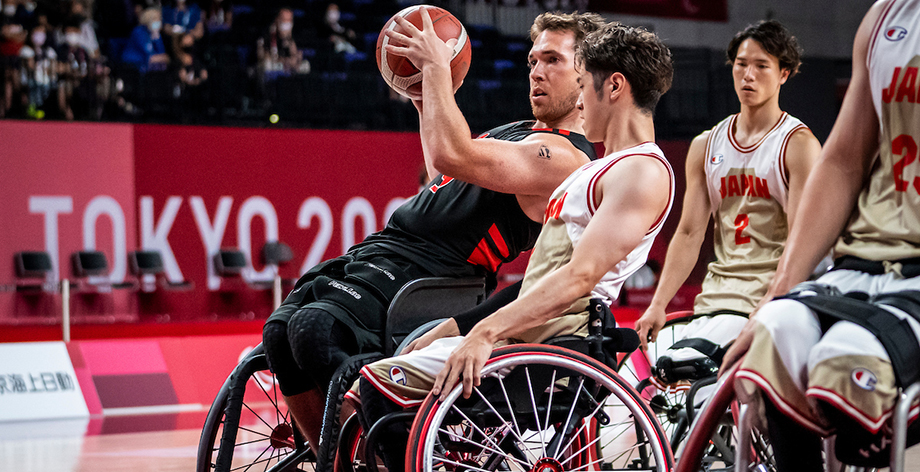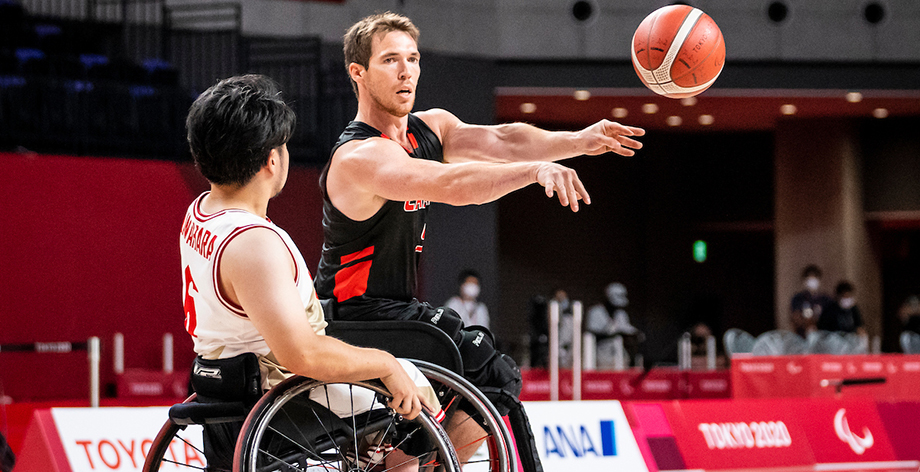Colin writes about growing up in Rothesay and playing hockey to his injury and earning a scholarship to the University of Missouri in this month’s Athlete Spotlight presented by Toyota.
I grew up in Rothesay, a suburb of Saint John, New Brunswick. I was pretty fortunate, I had super supportive family and friends. I played lots of sports growing up: hockey and baseball were probably the biggest two.
My favorite team growing up was the Montreal Canadiens in hockey, and for baseball, it was the New York Yankees. People like to jump on me for being a bandwagon fan, but I just wanted to be like my dad and that’s who he cheered for.
I dabbled in all kinds of sports: soccer, golf, tennis, badminton – anything.
My very first year of organized sports, I played basketball because basketball was my dad’s sport when he was growing up, but my best friend at the time played hockey, and his dad was a coach, so I was like, ‘Dad, I want to play hockey.’ Then I stuck with hockey.
I was playing a lot of competitive hockey and I was asked to join a showcase team to go down to a tournament in Boston. There are a number of schools there scouting, and one approached me and asked if I was interested. I went down for visits, and I did my Grade 11 and 12 years in New Hampshire on a prep scholarship to play hockey.
Down there I also played baseball and ran track in the other two seasons. I ran track and cross country in the fall, hockey in the winter, and baseball in the spring.
The injury
In my third hockey game of my senior year, I tore some stuff in my right knee, and then afterwards, I kind of said, ‘I just want to rehab and go home and be a normal high school kid.’ I kind of felt tired and burnt out of sport, hockey anyway. That led me back to Halifax which is where I hurt my left knee, and that led me to Wheelchair Basketball.
In my left knee, I ended up tearing my ACL, PCL, LCL, and meniscus. When that happened, it killed the nerve, my perennial nerve down in my foot, so I developed drop foot. My mom was a nurse who worked with an Occupational Therapist named Karen Ferguson, a Canadian classifier.
Karen knew of my injuries, and the extent of my injuries and encouraged my mother to try and get me to go out and try Wheelchair Basketball. I didn’t want anything to do with it for months and months. Eventually, I kind of gave in and I said I’d go watch it, I wouldn’t try it, I’d go watch it.
Discovering Wheelchair Basketball
It was the middle of winter, I showed up with jeans, work boots, and wool socks on purpose, but they wouldn’t let me leave without trying it. I was really fortunate, there was a good crew there, I had fun and certainly worked up a sweat in that attire.
I grew up around the rink and the ball field so I knew a little bit about sledge hockey, just because I had been around the rink so much, but I had never seen or heard of Wheelchair Basketball at all. In my mind, it was some guys being pushed around in hospital wheelchairs, and it wasn’t really anything I wanted a part of. Then I tried it, I was pushing fast, hitting people, falling over, and thought ‘this is kind of fun.’
Wheelchair Basketball kind of gave me that sense of purpose and direction, again, of being an athlete that I had been missing since I stopped playing hockey.
I had fun at my first practice, but immediately they were hyping up all the different possibilities that I could do with it. I was told I was eligible to go to Canada Games, and I could do this and that. I was like, ‘Oh, okay, that’s kind of cool.’
It wasn’t until I started going to a couple of Canada Games camps and went to Canada Games – my Canada Games experience was my first time outside the Maritimes playing Wheelchair Basketball, so it was a whole new world going to Prince George. That was a whole eye-opening experience. It was a turning point for me to kind of see how good people could be in Wheelchair Basketball.
From then I was invited to go to the development camp in the summer of 2015. After Canada Games, I kind of got the hunger and like, ‘Hey, I want to go to this camp. I got to work hard.’ I remember going to the camp, and the senior men were just finishing up a camp, so I was able to watch them for a practice or two I had a lot of fun and I felt like I was getting better.
People were telling me, ‘Hey, you should do this, you that’ and I just kind of got caught up in the whirlwind of it all.
I’ve been very fortunate with the different opportunities that Wheelchair Basketball has provided for me, but at the same time, I wasn’t 15 starting out, I was 23-24, so I had to sell myself and my parents to navigate what the next three, five, seven years of my life was going to be like if I was going to play Wheelchair Basketball.
I had to kind of see like, ‘If I work hard, I can do this. If I work, I can do that.’ From the earliest days, it was a goal of mine to, ‘Hey, I’m going to go to Toronto, get good enough to get a scholarship. and to go to the United States.’ Those kinds of things were on my mind as things to work towards.
Landing in Missouri
There is a large contingency of Canadian athletes that have spent time down in the U.S. collegiate system. Within the first while of being in Toronto, I was being asked about it, I was asking others about it: where to go, how to talk to people, how to contact people – all that stuff.
In the winter of 2017, I collected the emails of a bunch of different coaches in the States and sent out an email to them introducing myself and I attached a video, little short clips, and said, I’m interested in attending and playing Wheelchair Basketball. I talked to a couple of different coaches and schools, and it ended up working best with Ron Lykins and Missouri.
I am currently in my fourth year at the University of Missouri where I am a Sports Business major and I have one year left in my program before I graduate.
Growing up, I was heavy into sports, but I didn’t really know much about adaptive sports, so if I could help bridge that education or knowledge and raise awareness to some of the people back home in New Brunswick, that would be awesome.
There are so many people that just slip through the cracks and have no idea about the possibilities. It could really change their lives. That’s kind of something that’s always kind of – it’d be really, really cool to feel that change if I could help implement some programs with Parasport New Brunswick. I’m on the Board of Directors with Parasport New Brunswick and we’ll see what we can make happen in the future.
First Paralympic experience
Obviously, it was a little different with Covid-19, it wasn’t exactly what I had in my mind, but my biggest takeaway was that it kind of reconfirmed my hunger and drive to keep playing and get better. I love that competition, that mindset – it just makes me want to work harder to get to the next one and to do better at the next one.
There’s no bigger stage for our game and I want to get back and do it again and do better.
Advice for future Wheelchair Basketball players
There are so many people that are wanting and willing to help. If you reach out, somebody is going to help you and the second you sit in a chair, chances are it’s going to be a pretty fun group.
Everyone has been that rookie player before; they know what to expect from someone sitting in the chair for the first time – they’re going to try and help you out. You’re probably going to have fun, you’re going to hit a basket, you’re going to fall over – just give it a try.
Maybe Wheelchair Basketball is not for you, but it could lead you to a different sport, so just give it a chance. People are more than willing to lend a helping hand.





